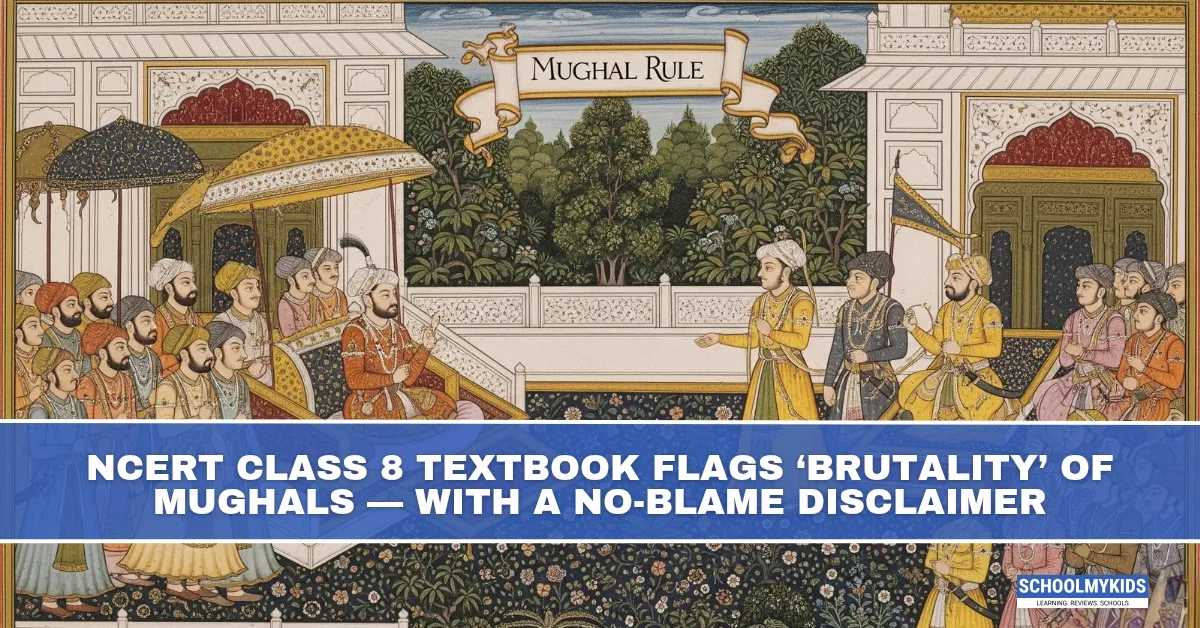The latest edition of the Class 8 NCERT Social Science textbook has introduced a significant shift in the way the Mughal Empire is portrayed — sparking debate among historians, educators, and the public. The book now includes references to the "brutality" of certain Mughal rulers but also carries a clear caution: no one should be held responsible today for events of the past.
What Has Changed in the Textbook?
The new chapter — part of the Our Pasts - III series — introduces students to what NCERT refers to as the “darker periods of Indian history.” The text includes a pointed mention of the violent methods used by some Mughal emperors to suppress rebellions, conquer new territories, and control dissent.
However, alongside this portrayal, the book now features a special note, clearly stating:
“The purpose of highlighting these historical events is to encourage critical thinking, not to assign blame to any community today.”
This is aligned with a section titled “Note on Some Darker Periods in History,” which is included to provide historical context while discouraging communal or political interpretations in the present.
Why the Change?
The update is part of NCERT’s broader curriculum rationalization strategy that seeks to make content more balanced, engaging, and historically comprehensive. Officials argue that history should be taught with its complexities — acknowledging both achievements and atrocities — but without letting it fuel modern-day prejudice.
Dr. Dinesh Prasad Saklani, NCERT Director, noted in a recent interview that “history should be used as a mirror, not a weapon,” and that the new content is intended to develop analytical skills in students, not to provoke cultural blame games.
Reactions from Scholars and Public
Historians are divided. Some argue that the Mughal era, like any period of empire-building, had elements of violence and should be studied in full context — including its contributions to architecture, culture, and administration. Others welcome the change as a long-overdue correction to what they view as a romanticized version of the Mughal rule in earlier syllabi.
Educational experts also stress the importance of pedagogical responsibility. Highlighting difficult aspects of history without creating modern-day divisions is a tightrope walk — one that requires careful wording, balanced examples, and teacher training.
Looking Forward
While the update may stir controversy in some quarters, it opens the door for more nuanced discussions in the classroom. By adding disclaimers and encouraging critical analysis, NCERT seems to be attempting a new model of teaching history — one that acknowledges past wrongs but resists weaponizing them in the present.
As India’s educational curriculum evolves under the National Education Policy (NEP) 2020, such changes may become more common — reflecting both academic responsibility and the cultural sensitivities of a diverse nation.








Be the first one to comment on this story.